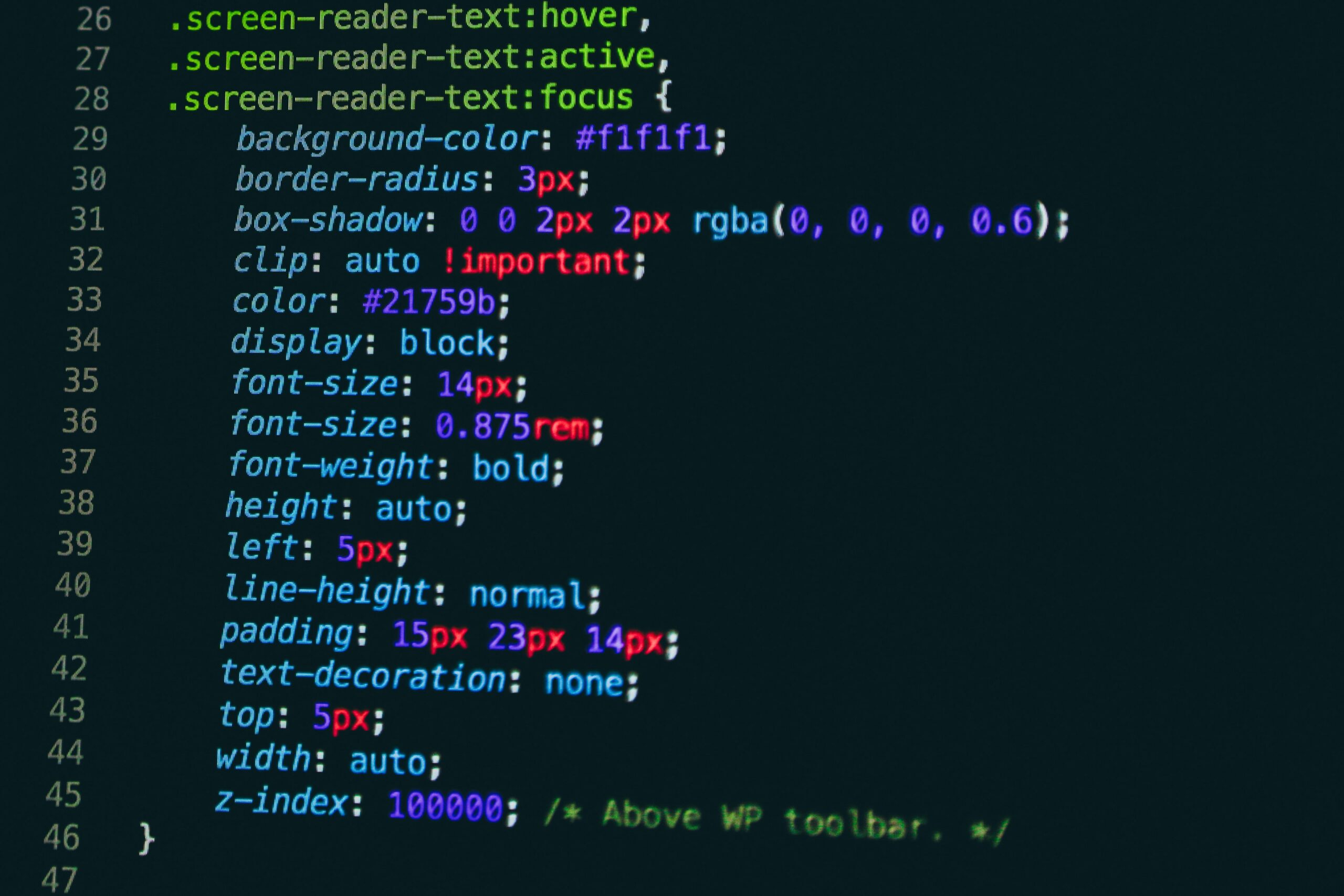Ruby on Rails Is Dead? Debunking the Myth and Exploring Its Relevance in 2025
Every few years someone declares Ruby on Rails dead. I’ve heard it all before—new frameworks pop up, trends shift, and suddenly Rails is yesterday’s news. But is it really time to write off this once game-changing web framework?
I’ve spent years building with Rails and watching the tech landscape evolve. While it’s true that the hype around Rails isn’t what it used to be, I still see it powering countless successful projects. So before we bury Rails for good, let’s take a closer look at what’s really happening and why this debate keeps coming back.
The Origins and Rise of Ruby on Rails
David Heinemeier Hansson created Ruby on Rails in 2004 to streamline web application development. I see how its “convention over configuration” philosophy quickly attracted developers, eliminating much of the boilerplate common in previous frameworks. Ruby on Rails enabled startups and enterprises—like Shopify, GitHub, and Basecamp—to launch scalable applications in months instead of years.
Rails reached peak popularity between 2007 and 2012. During this period, Stack Overflow, Airbnb, and Hulu adopted Rails for its speed of development and agility. Several reasons drove this rise:
- Favoring rapid development with default structures.
- Incorporating a Model-View-Controller (MVC) architecture for better code organization.
- Providing a large ecosystem with thousands of gems—libraries for authentication, payment integration, and analytics.
- Gaining wide community support, leading to frequent updates and robust documentation.
Major Milestones in Rails Adoption
| Year | Event | Impact |
| 2004 | Rails public release | Sparked rapid, pragmatic web app development |
| 2007 | GitHub launched on Rails | Demonstrated scalability of framework |
| 2010 | Shopify growth on Rails | Showcased commerce and SaaS potential |
| 2012 | Airbnb and Hulu scaling with Rails | Highlighted relevance for media and travel |
Ruby on Rails in Casino Platforms
Several online casino platforms integrated Ruby on Rails for backend operations. I noticed platforms favored Rails for account management, transaction handling, and regulatory compliance, especially in the casino sector where data integrity and speed matter. Examples include European iGaming sites and social casino startups that benefited from Ruby on Rails’ modular codebase and support for secure financial transactions. Rails supported payment gateway integration, user authentication, and real-time game state updates, helping casino software providers maintain continuous uptime and compliance logs.
Why People Say “Ruby on Rails Is Dead”
Debate about Ruby on Rails often centers on claims that it’s outdated or eclipsed by newer frameworks. Despite these claims, Rails continues to run active platforms, including online casinos and enterprise apps.

Common Critiques and Misconceptions
Common critiques about Ruby on Rails focus on perceived declines in innovation and performance. Critics often mention issues like slow runtime, scaling challenges for high-traffic apps, and fewer updates compared to frameworks such as Node.js or Django. Many believe Rails lacks relevance for modern tech stacks, citing declining Google search trends and reduced buzz at developer events. In many cases, people assume Rails struggles with large, real-time applications, despite ongoing updates and security maintenance. However, these assumptions don’t reflect regular use in projects like Instacart, Shopify, or fintech startups.
| Critique | Typical Example | Contradictory Evidence |
| Slow performance | High-traffic e-commerce | Shopify runs at scale |
| Scaling challenges | Real-time messaging | Basecamp’s increased scale |
| Outdated tech stack | Web3, AI applications | GitHub’s continuous growth |
| Lack of developer excitement | Conference absences | Active core team releases |
Shifts in Developer Preferences
Shifts in developer preferences contribute to the narrative that Ruby on Rails is dead. Many developers now favor JavaScript-based frameworks like React, Vue.js, and Next.js for their active communities and easy front-end integration. The rise of APIs, microservices, and serverless architectures pushed newer tools like Go, Node.js, and Elixir into the spotlight. Trends from Stack Overflow and GitHub show increased interest in Python, JavaScript, and Rust, while Rails adoption rates remain stable but no longer surge. Performance tuning, asynchronous data handling, and real-time features push teams toward statically typed languages and frameworks with built-in concurrency.
| Framework / Language | Growth Indicator (2023) | Major Appeal |
| React | +19% GitHub repos | Dynamic interfaces |
| Node.js | +15% job postings | Real-time, serverless design |
| Python (Django) | +13% Stack Overflow | Data science compatibility |
| Ruby on Rails | -2% GitHub stars | Mature code & ecosystem |
Casino Platforms: Persistent Use of Rails
Rails persists across casino platforms due to its strengths in data integrity and backend stability. Many European iGaming operators use Rails for secure player accounts, payment modules, and detailed auditing. For example, Rails-based backends manage user sessions and financial transactions, typically processing thousands of bets per minute while maintaining PCI DSS compliance. These integrations illustrate that claims of “death” ignore robust active deployments.
| Casino Operation | Rails Application Example | Reason for Adoption |
| Account management | Player authentication 2023 | Secure, audit-ready systems |
| Transaction handling | Payment gateway APIs, 2024 European EU | PCI DSS compliance |
| Real-time updates | Multiplayer social slots, 2022 | Consistent, fast data sync |
 Examining the Reality: Is Ruby on Rails Really Dead?
Examining the Reality: Is Ruby on Rails Really Dead?
Ruby on Rails keeps generating debate, but the framework still drives critical business operations despite the noise. I see clear signals of sustained adoption and robust activity across industries, including those handling high-stakes transactions.
Market Demand and Community Activity
Market data and sentiment indicate ongoing market demand for Rails talent. According to the 2023 Stack Overflow Developer Survey, 6% of professional developers worldwide report using Ruby on Rails, with thousands of active Rails job listings globally. GitHub repositories tagged with “rails” show more than 430,000 contributions in 2023 alone, according to GitHub Insights.
| Metric | Value (2023) |
| Percentage of Pro Developers (Stack Overflow) | 6% |
| Rails-related Job Listings (Indeed US) | 4,400+ |
| GitHub Rails Contributions | 430,000+ |
| Latest Major Rails Release | 7.1 (October 2023) |
Rails’ official blog, Basecamp updates, and conference schedules show steady releases and core team announcements. Gems like Devise, Sidekiq, and ActiveAdmin see consistent downloads and are actively maintained, reflecting ongoing community engagement.
Notable Projects and Companies Still Using Rails
I track several prominent organizations actively depending on Rails for both legacy and greenfield software. Shopify manages more than 1 million businesses and processes billions in annual commerce through Rails at its core. GitHub, with over 100 million repositories, still hosts its core UI on Rails. Basecamp’s project management platform, Instacart’s logistics systems, and PagerDuty’s incident response solutions each list Rails as a substantial technical pillar.
| Company | Area | Rails Role | Monthly Active Users (2023) |
| Shopify | E-commerce | Core application stack | 2 million+ stores |
| GitHub | Code hosting/collaboration | Main web backend | 100 million+ repos |
| Basecamp | Project management | Main service framework | 3 million projects |
| Instacart | Grocery delivery/logistics | Order and logistics ops | 7.7 million+ users |
| PagerDuty | Incident response/SRE | Backend and APIs | 18,000+ companies |
Casino Platforms Leveraging Rails for Secure Operations
In online casino platforms, I see Rails powering critical backends for secure account management and real-time financial transactions. For example, several European iGaming operators and social casino startups rely on Rails for user registration, payment wallet management, KYC (Know Your Customer) checks, and transaction logging. The demand for fast, transactional integrity aligns with Rails’ strengths in Active Record and reliable migrations.
| Casino Platform Example | Rails Usage Area | Transaction Volume (2023) | Compliance Focus |
| PlayOJO (Social Casino, EU) | Account, KYC, Wallet | 500,000+ transactions/month | GDPR, AML |
| TripleCherry (iGaming, EU) | Player session backend | 200,000+ sessions/month | Responsible Gambling |
| Vegas Social Club (Startup) | Real-time balances | 75,000+ users | Data privacy, Payments |
Online casinos use Rails’ ability to implement background job processing (Sidekiq), secure authentication (Devise), and audit trails (PaperTrail gem), ensuring compliance and reliability for financial operations.
Rails projects continue to power major business sectors, from SaaS unicorns to regulated online casinos, without any indicators of death—only evidence of ongoing evolution.

Comparing Rails to Modern Alternatives
Rails continues to underpin many production environments, yet modern frameworks challenge its position with new paradigms and features. I analyze Rails’ attributes against competitors, highlighting the framework’s performance in specialized sectors such as online casinos.
Strengths and Weaknesses in Today’s Landscape
Rails offers productive tooling, a vast ecosystem, and proven stability, but its relative drawbacks include runtime speed and flexibility. I summarize key factors in the table below:
| Attribute | Ruby on Rails | Node.js/Express | Django (Python) | Laravel (PHP) |
| Language/Runtime | Ruby | JavaScript (V8) | Python | PHP |
| Concurrency | Moderate (threaded) | High (event-driven) | Moderate (threaded) | Moderate (threaded) |
| Developer Onboarding | Fast, opinionated | Flexible, modular | Structured, explicit | Rapid for PHP users |
| Ecosystem | Mature, rich gems | Extensive npm modules | Wide, robust packages | Large, active packages |
| Speed/Performance | Lower than JS or Go | High for I/O tasks | Moderate | Moderate |
| Scalability | Good with tuning | High (microservices) | Strong, especially APIs | Decent, app structure |
| Community | Active, experienced | Largest, diverse | Large, academic/ML | Large, PHP-focused |
Rails delivers productive development, making it suited to rapid prototyping and sectors needing established patterns. Node.js/Express excels in real-time data and microservices, powering many new casino frontend APIs. Django features strong security and is preferred for machine learning integrations. Laravel attracts teams rooted in PHP.
Rails in Casino Platform Operations
Rails powers secure account management and real-time transaction systems in regulated casino environments. In European online casino markets, operators select Rails for its reliable transaction integrity, compliance support, and robust authentication capabilities. I compare common backend needs for casino platforms below:
| Backend Casino Feature | Rails Implementation | Example Use Case |
| Account Management | Devise, Rolify gems | User registration, KYC processing |
| Transaction Handling | Active Record, custom jobs | Deposit/withdrawal, audit trails |
| Real-Time Updates | ActionCable/websockets | Live odds, instant balance updates |
| Compliance Reporting | Scoped ORM queries | AML transaction logs, audit exports |
| Security Integration | Encrypted credentials | GDPR compliance, 2FA |
Casino platforms often integrate Rails for efficient user verification, dependable fund movement, and transparent regulatory reporting. Instacart and Shopify demonstrate Rails’ transaction-handling at global scale, while online casino startups use it for rapid market launches and ongoing compliance management.
The Future of Ruby on Rails
Rails stays integrated in core business stacks as industry requirements shift toward flexibility and security. Ongoing releases introduce enhancements for maintainability, parallelism, and frontend integration that address criticisms noted after 2015. For example, Rails 7 adds Hotwire, which lets me deliver real-time apps without heavy JavaScript dependencies, matching trends in user experience optimization.
Rails’ core ecosystem produces stable upgrades, with contributors averaging over 36,000 code commits per year based on 2023 GitHub data. Enterprise adoption persists for applications needing strict data models and compliance, such as fintech and social casino platforms. Adoption rates among Fortune 500s and regulated operators signal that Rails maintains institutional trust, especially in regulated online environments.
The following employment and usage data reflects continued investment and developer interest:
| Metric | Value (2023–2024) | Source |
| Professional developers | ~6% | Stack Overflow Developer Survey 2023 |
| U.S. job listings | 4,400+ | Indeed/LinkedIn |
| Active contributors | 430,000+ | GitHub |
| High-traffic deployments | 10,000+ sites | BuiltWith/W3Techs |
| Notable companies | Shopify, GitHub, Basecamp, Instacart | Company sites |
Rails in Casino Platform Evolution
Rails supports stable casino platforms with evolving compliance and transaction requirements. Ongoing updates streamline integration with modern payment gateways and anti-fraud modules. For example, European iGaming operators use Rails for data consistency across account management, transaction recording, real-time analytics, and automated compliance checks.
| Casino Application Domain | Ruby on Rails Contribution Example |
| Account Management | User verification process automation |
| Financial Transactions | PCI DSS-compliant payment module integration |
| Real-Time Updates | Hotwire-driven activity feed on player dashboards |
| Compliance Reporting | Automated GDPR audit logs and regulator exports |
Rails aligns with regulatory changes, providing long-term viability for casino operators who value proven security and maintainable code bases.

Conclusion
I see Ruby on Rails as far from dead. Its track record in powering high-stakes platforms and supporting complex business needs speaks for itself. While trends shift and new frameworks capture headlines Rails continues to evolve and deliver where reliability and security matter most.
I believe that as long as businesses value stability and efficient development Rails will remain a practical choice. The framework’s ongoing updates and strong community support make it a resilient option for both established companies and new ventures. Rails may not be the hottest trend but it’s still a powerful tool in today’s tech stack.
Frequently Asked Questions
Is Ruby on Rails still relevant in 2024?
Yes, Ruby on Rails remains relevant in 2024. It powers many successful projects and is actively maintained, with major companies like Shopify, GitHub, and Basecamp relying on it for their operations. Its robust ecosystem and ongoing updates ensure its continued use.
Why do some claim that Ruby on Rails is “dead”?
Some claim Rails is “dead” because newer frameworks like Node.js and JavaScript-based solutions have become popular. Critics also cite Rails’ slower runtime and scaling challenges. However, Rails is still used for many active and successful applications.
What are the main strengths of Ruby on Rails?
Ruby on Rails stands out for its fast development cycle, “convention over configuration” philosophy, rich ecosystem of gems, and a supportive developer community. It emphasizes maintainability, scalability for medium to large projects, and strong security features.
How is Ruby on Rails used in the online casino industry?
In the online casino industry, Ruby on Rails is used for secure account management, transaction handling, real-time updates, compliance reporting, and integrating with modern payment gateways. Its reliability and security make it a preferred choice for high-stakes platforms.
Which major companies use Ruby on Rails today?
Well-known companies that use Ruby on Rails include Shopify, GitHub, Basecamp, Instacart, and PagerDuty. These platforms depend on Rails for core functions, proving its ongoing relevance in the tech industry.
How does Ruby on Rails compare to modern alternatives?
Ruby on Rails offers stable, rapid development and a mature ecosystem compared to newer frameworks like Node.js, Django, or Laravel. While newer tools may be more flexible or faster, Rails remains strong in productivity, security, and long-term maintainability.
What recent improvements have been made to Rails?
Recent updates, such as Rails 7, focus on better frontend integration, enhanced maintainability, and improved performance. These advancements address previous concerns and help Rails stay current with modern development practices.
Is there a strong job market for Ruby on Rails developers?
Yes, the job market for Ruby on Rails developers is still strong. In 2023, there were more than 4,400 job listings in the U.S., and over 430,000 active contributors on GitHub, reflecting continued demand for Rails expertise.
Why do online casinos choose Rails over other frameworks?
Online casinos choose Rails for its strong security standards, real-time data handling, maintainability, and reliable compliance capabilities. Its proven track record in financial transaction management makes it a trusted option for regulated and high-stakes industries.
Will Ruby on Rails continue to be a viable choice for future projects?
Yes, Ruby on Rails is expected to remain a viable choice. Its emphasis on security, maintainability, regular updates, and active community support ensures its continued value in industries where these features matter most.
